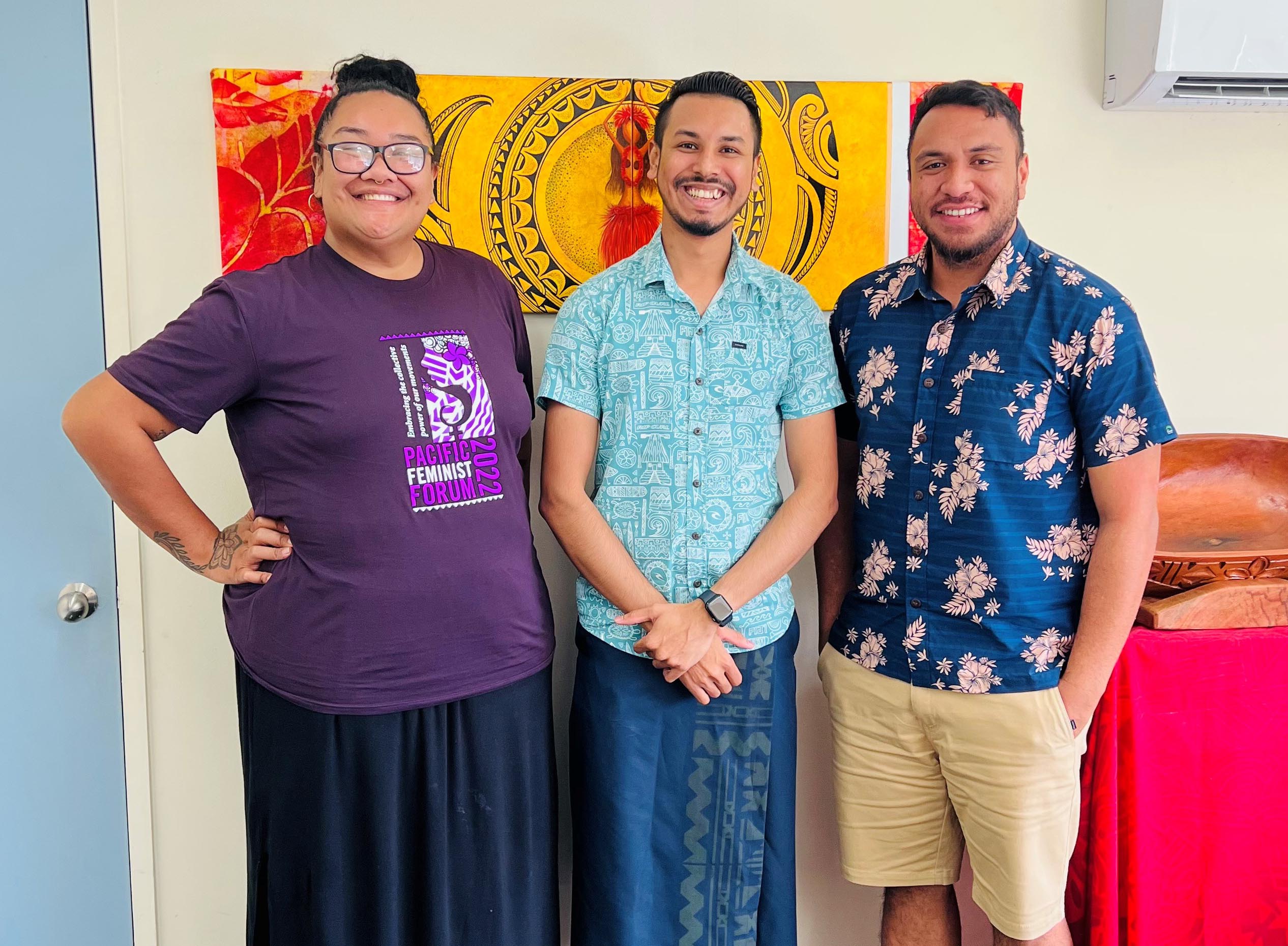Related News

Capitalizing on the massive youth anti-corruption engagement initiated by the University of the South Pacific Students’ Association (USPSA), with support from the United Nations Development Programme (UNDP), and funded by the UK Government, USPSA, in cooperation with the Youth Council of the Cook Islands and relevant authorities, organized anti-corruption consultations and policy dialogue between the anti-corruption institutions, youth and civil society stakeholders from 17-23 May in the Cook Islands.
The anti-corruption policy dialogue brought together youth and representatives from key government and non-government stakeholders in the Cook Islands including the Office of the Prime Minister, Ministry of Foreign Affairs and Immigration, National Youth Council, National Women’s Council, the Ombudsman’s Office, National Disability Council and Pride Cook Islands. The discussions and policy advocacy workshops with these stakeholders aimed at furthering the region’s commitments under the Pacific Youth Vision on a Corruption-resilient 2050 Blue Pacific.
The dialogue focused on the related challenges and opportunities for youth and civil society more broadly to be actively involved in the implementation of the Youth Vision, monitoring and achieving results nationally and regionally. The dialogue embraced around 100 students, community leaders and civil society and citizens at large.
Mr. Mia Teaurima, Director of Island Governance (Office of the Prime Minister of the Cook Islands) said the Cook Islands is committed to the United Nations Convention against Corruption (UNCAC), the Sustainable Development Goals (SDGs), Teieniwa Vision Pacific Unity against Corruption, and the 2050 Blue Pacific Strategy, which set out long-term approaches to working in unison as a region and as countries, communities and as people of the Pacific.
“We welcome the youth anti-corruption movement expanding to the Cook Islands and establishing the linkages and relevance between national, regional and international anti-corruption work where all stakeholders can work together. It is critical that our youth today who are our future leaders are well acquainted with the principles of good governance to avoid corruption in our societies,” he added.
USP Vice-Chancellor and President, Professor Pal Ahluwalia said, “This youth initiative has connected young people both to the current regional political leadership and the wider community, empowering them to voice their anti-corruption concerns and advocate for action.”
Student Associations’ work has also empowered Pacific youth to engage positively in sustainable development areas particularly around good governance. This has benefits for future more targeted engagement and spotlighting specific topics of youth concern where improved action is needed, such as in relation to addressing gender inequality and the climate crisis.
The continued youth advocacy and increased demand for more structured and sustainable dialogue on anti-corruption culminated in the launch of a Youth Advisory Board on Good Governance. The Advisory Board was formally launched on 11 May during the Pacific Conference on Governance in Auckland, New Zealand organized by the USPSA in partnership with UNDP, and funded by the UK government and the New Zealand government, with over 65 youth participants and national and regional policymakers.
The Advisory Board, based at USPSA and affiliated to the Pacific Islands Forum Secretariat (PIFS), will also work closely with other Council of Regional Organizations of the Pacific (CROP) agencies to further scale up and institutionalize the strategic youth anti-corruption engagement in support of the regional policy commitments including the Teieniwa Vision and the 2050 Blue Pacific Strategy.
Ms Nicola Noble, Deputy High Commissioner to Fiji said, “The UK is delighted to see the development of the youth anti-corruption movement to this unprecedented scale, which has the potential to influence regional policy making. This project is one of a number of local initiatives which the UK is supporting through the Pacific CSSF programme and reflects the UK’s strong commitment to deepen our engagement in the region and support our shared vision for stability, cooperation and prosperity.”
Ms Verena Linneweber, Officer-in-Charge, UNDP Multi Country Office in Samoa said, “The development of the Pacific Youth anti-corruption movement is an impressive and commendable achievement as part of UNDP’s anti-corruption assistance to 14 Pacific Island Countries in the region.”
She added that UNDP’s anti-corruption work in the Pacific includes supporting anti-corruption policymaking, forging multi-stakeholder consultative processes, and working with different stakeholders towards improved anti-corruption results in line with UNDP’s governance mandate as well as its role as an integrator of the SDGs.
In partnership with the UNDP Pacific Office in Fiji under its project, ‘Strengthening Anti-Corruption, Transparency and Accountability in Pacific Island Countries’ (Pacific Anti-Corruption Project) funded by the Government of the United Kingdom, the dialogue created a multi-stakeholder approach and inclusion in the implementation of the Youth Vision, including specifically in relation to the voice of youth.